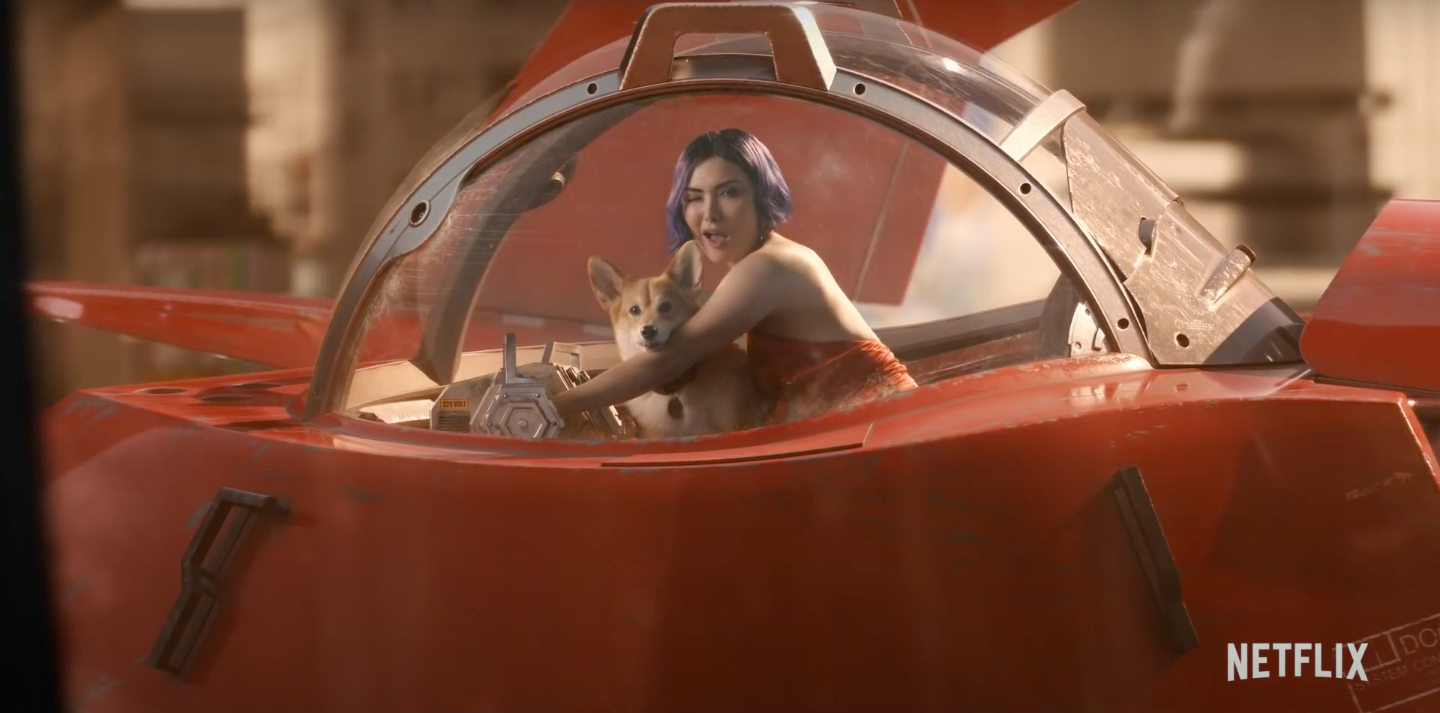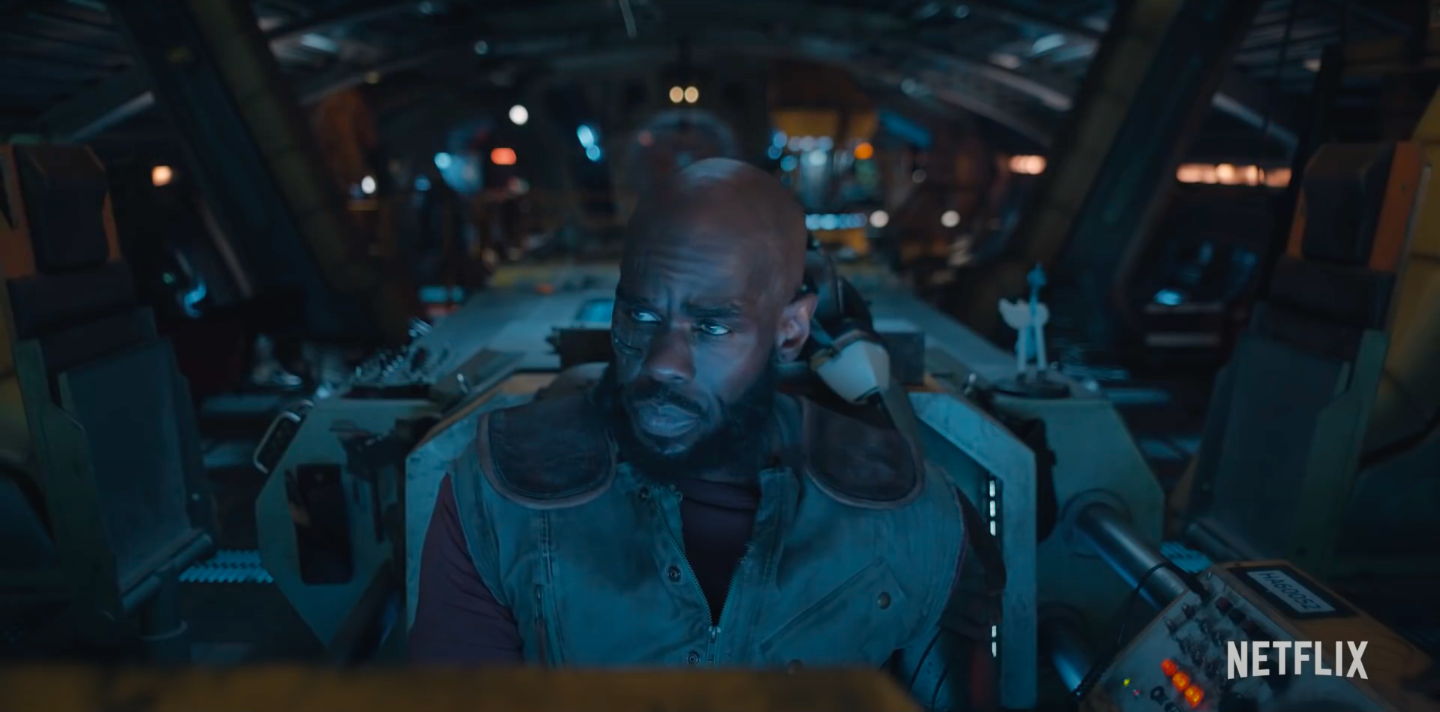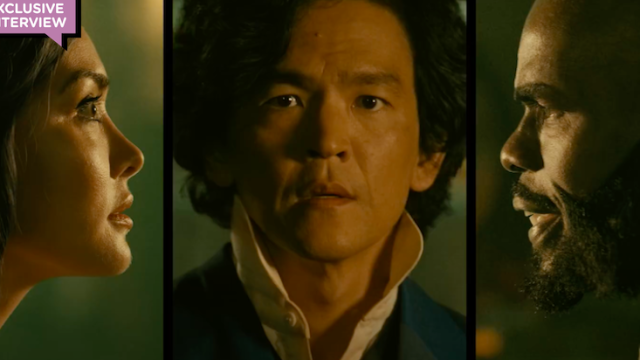As much as the new Cowboy Bebop takes notes from the original show in terms of its story beats, John Cho, Daniella Pineda, and Mustafa Shakir all bring a difference to their performances as Spike, Faye, and Jet that immediately sets them apart from their animated counterparts. Gizmodo recently got the chance to speak with them about the Netflix series and their dynamics.
Though the new live-action Cowboy Bebop is a still story about a bunch of trigger-happy bounty hunters gallivanting around space in search of criminals to turn in for fat paydays, it’s also about how each of its characters desperately craves being part of a family after previously having lost the ones they knew. Spike, Faye, and Jet are all running from different things before crossing paths and eventually becoming the crew of the Bebop, the ship where the trio spends a significant amount of time hanging out. But once the ship becomes their home, you start to see how being around one another is what makes them feel like they can slow down and begin being honest with themselves.
When Gizmodo recently sat down with the cast of Cowboy Bebop to talk about their characters’ dynamics, they explained how the important thing to understand about the crew is that the vibe between them is almost always in a state of flux. Those moments of sincerity are all heartfelt, the cast explained, but they’re all pieces to much bigger pictures that the Bebop’s crew aren’t necessarily trying to reveal to one another, even as they’re growing closer.
Charles Pulliam-Moore, Gizmodo: Your Spike is way more sparing when it comes to turning on the charm than his anime counterpart, and I think you see a lot more of emotionally withholding he can be. His feelings about Julia aside, what for you was Spike’s emotional centre over the course of the show?
John Cho: I think it was hiding his true self and hiding his loss and trying to convince himself that he functions without [Julia]. Hiding was what he was doing as an activity on a daily basis, so it sort of consumes him, and then you start seeing the fissures.
Gizmodo: Faye doesn’t know who she is, but she does have these really intense instincts and an impulsiveness that keeps her moving. I’m curious where you as a performer have to go to really tap into that energy?
Daniella Pineda: The impulsivity was not difficult for me at all. I’m sure if you look up in the DSM, you could probably figure out — I’m probably in there somewhere. So that to me was like easy — that was butter. But I think the big thing for Faye is she doesn’t want to show vulnerability and it takes her a second to shed her layers like an onion. She doesn’t like to appear vulnerable in front of [Spike and Jet]. She doesn’t take any shit. She was thrown out of her car and expected to hit the ground running, and that’s exactly what she did.

Gizmodo: Faye’s sexuality and the way she sort of wields it is such a big part of her characterization in the anime, and it’s really interesting how your show approaches that facet of her a little bit differently. What elements of Faye’s ability to “connect” with other people did you really want to highlight with your performance?
Pineda: You know, a lot of people have said that [Faye’s] sexuality is toned down. We’re only in season one — let’s just start there. There’s a lot of room to explore and I think you, as the viewer, are going to explore. She’s exploring who she is because she doesn’t know who she is. She’s finding out all of these things and she’s experimenting, and she’s trying to understand, you know, who is this person in there, I think that the audience is going on that ride with her.
Gizmodo: Jet’s one of those anime characters who a lot of Black viewers were able to see themselves in, and now here you are as the canonically-Black Jet Black. In your mind, how do things like Jet’s Blackness and his past life as a cop shape his worldview?
Mustafa Shakir: I kind of feel like [Beau] Billingslea, the guy who voiced Jet in the anime, he said that it’s a race-neutral character, and I tend to agree. Other than his love of jazz and his name, you know, there’s not like anything that is [definitively] Black about him. I think he’s just… he represents that universal appeal that that space actually facilitates. But I think, of course, people are going to project onto the character because I’m playing him, but I feel like there’s not a lot that is typically Black about him.

Gizmodo: As the series goes on, you can see how badly Jet still wants to be a part of his daughter’s life, and how familial love is something he values.
Shakir: What was most important for me is to show the care and to show the subtle desperation of trying to create a family where I had lost one. And so everything is approached with that sense of urgency and need for this to work.
Cho: I just felt like what was cool about the three of us was how you couldn’t describe the dynamic between three of us in one sentence. It was just shifted depending on who was in the scene, what was going on, and it felt very real that that way. I was saying earlier that it felt like a different genre of movie when I was, you know, when I had scenes with Jet, and it felt like a different movie when I had scenes with Faye. When we were all together, sometimes it felt comedic. We were able to shift all the time, and I think that was probably the biggest pleasure of it and the most fun.
Cowboy Bebop is now streaming on Netflix.
